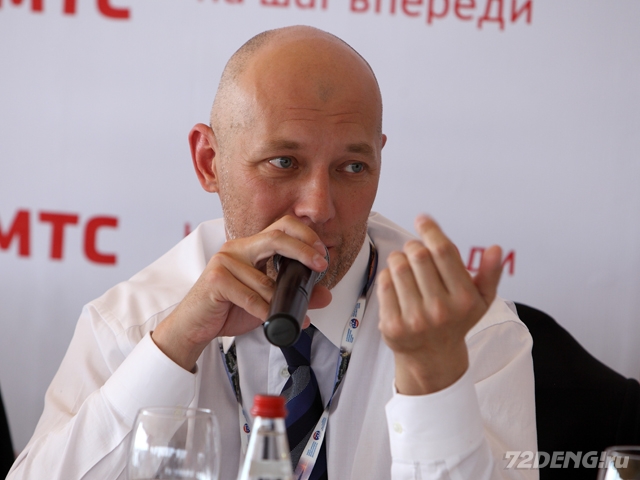Opinion MTS on the abolition of domestic roaming

Part of an interview with the President of MTS, which deals with the abolition of domestic roaming
- In the past six months, several bills have emerged that could worsen the situation of the telecommunications industry, for example, on the abolition of intranet roaming, etc. How do you feel about the risks? And do you meet with understanding from the regulator of the market - the Ministry of Communications?
- We have positive feelings, we consider the regulator to be a completely constructive force. Populist ideas are born, as a rule, not at the regulator. The task of market participants and the regulator is to implement these ideas correctly, accurately, correctly, without prejudice to anyone else, if they in some part really bring a positive to the market and for citizens. Attempting to unbalance the situation, extolling the interests of only one of the parties, is destructive in any process. In our case, the parties are subscribers, and our shareholders, and investors, and the state that collects taxes and regulates the market. Here you mentioned intra-network roaming: they say that in the interests of subscribers we have to cancel it. But the industry, the cellular business has evolved over two decades. And there is a huge amount of regulatory bylaws, including completely archaic ones, which are closely linked to the same intranet roaming. For example, we still have to have our own switching equipment in every Federation subject, although from a technological point of view this is not justified in any way: why not put one switch, relatively speaking, into five regions if technologically it does [traffic processing], if all norms are respected? But we have no such right. Therefore, there are a lot of actions that need to be discussed, worked out and accomplished in order for some idea to work, for some positive. Just turn some switch and say - hurray, we did for everyone well - it will not work. This is the path to nowhere.
- Is it possible then to say that MTS is ready to abolish intranet roaming, but only under the condition of introducing serious accompanying changes in the sectoral legislation?
- No, it is impossible to say so, because it will mean that we are the promoters of this idea. But I did give only one introductory in reply to your question. And at least a few of them. I understand why there should not be intranet roaming in a smaller country from a geographical point of view. It is quite another thing to cancel the intranet roaming when the Moscow subscriber leaves, for example, to Vladivostok. In order to provide him with the opportunity to call to Moscow, the telecom operator must either build its own lines of communication or rent them from another operator, which is a huge expense. And from our point of view, they should be reimbursed by the subscriber who uses this infrastructure, i.e., has moved to another region. With the abolition of intranet roaming, such costs are proposed to be transferred to all subscribers, regardless of whether they travel in the country or not. This is not entirely fair. In addition, it is necessary to take into account the fact that the economic situation, the level of wages in Moscow and Vladivostok is different. Tomorrow we will cancel on-net roaming - so what? All Moscow will begin to talk at the same tariffs that operate in Vladivostok? But then all operators will have their incomes several times lower, we will invest less, the quality will decrease, the state will lose huge amounts of taxes. This is normal when in such a huge country as Russia, there is a differentiation of price policy depending on the level of development of the economy in a particular region. There are only 13 donor regions in Russia, all the others are subsidized. And intranet roaming, among other things, allows us to maintain low prices for calls in the home region in these subsidized regions.
')
Andrey Dubovskov
MTS President
full text of the interview (not only about roaming)
Source: https://habr.com/ru/post/149534/
All Articles